Our goal is to understand the neural circuits that allow the brain to encode, consolidate and recall memories
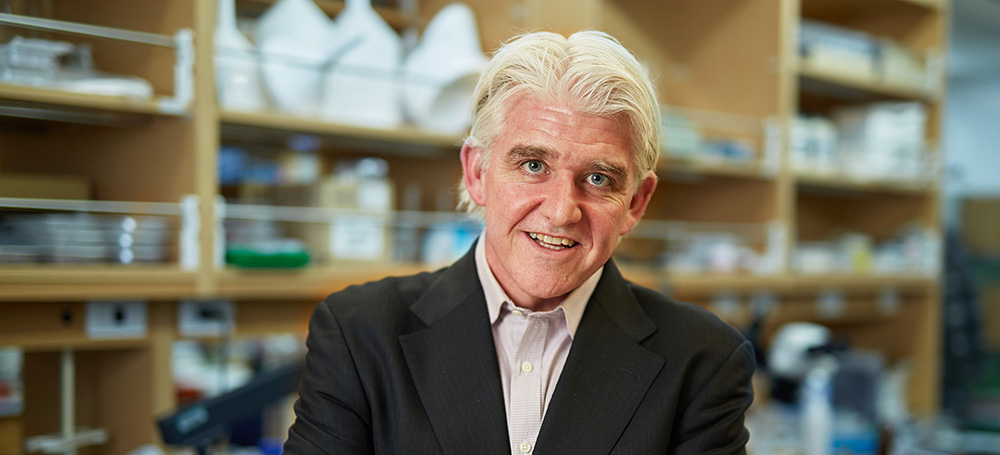
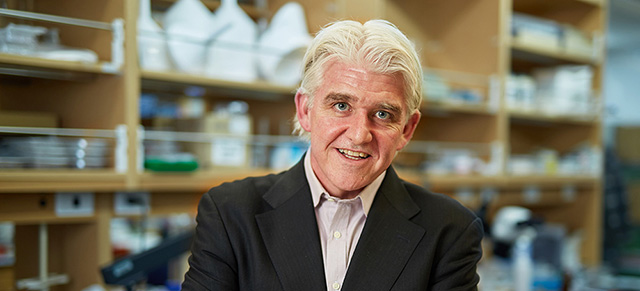
Thomas McHugh, Ph.D.
Team Director, Circuit and Behavioral Physiology
thomas.mchugh@riken.jp
Research Overview
The hippocampus is one of the most well characterized and intensely studied regions of the mammalian brain and an ideal model system to test hypotheses linking memory and neural information representation. My laboratory combines in vivo hippocampal electrophysiology and cutting-edge conditional genetics to address research questions at a high level of precision. Our ability to manipulate plasticity, synaptic transmission or neuronal excitability in a subregion or pathway specific manner and to characterize the consequences of those manipulations on the behavioral and physiological level allows us to study the dynamic routing and use of spatial information in the brain.
Main Research Fields
Biology
Related Research Fields
Biological Sciences
Keywords
- Learning
- Hippocampus
- electrophysiology
- genetics
- memory
Selected Publications
- Kazumasa Z. Tanaka, Hongshen He, Anupratap Tomar, Kazue Niisato, Arthur J. Y. Huang, Thomas J. McHugh.:
"The hippocampal engram maps experience but not place"
Science, Vol. 361, Issue 6400, pp. 392-397, 27 July 2018, DOI: 10.1126/science.aat5397 - Steven J. Middleton, Emily M. Kneller, Shuo Chen, Ikuo Ogiwara, Mauricio Montal, Kazuhiro Yamakawa and Thomas J. McHugh.:
"Altered hippocampal replay is associated with memory impairment in mice heterozygous for the Scn2a gene"
Nature Neuroscience, 04 June 2018; DOI: 10.1038/s41593-018-0163-8 - Shuo Chen, Adam Z. Weitemier, Xiao Zeng, Linmeng He, Xiyu Wang, Yanqiu Tao, Arthur J. Y. Huang, Yuki Hashimotodani, Masanobu Kano, Hirohide Iwasaki, Laxmi Kumar Parajuli, Shigeo Okabe, Daniel B. Loong Teh, Angelo H. All, Iku Tsutsui-Kimura, Kenji F. Tanaka, Xiaogang Liu, Thomas J. McHugh.:
"Near-infrared deep brain stimulation via upconversion nanoparticle-mediated optogenetics"
Science, Vol. 359, Issue 6376, pp. 679-684, 9 February 2018, DOI: 10.1126/science.aaq1144 - Boehringer R, Polygalov D, Huang AJY, Middleton SJ, Robert V, Wintzer ME, Piskorowski RA, Chevaleyre V, McHugh TJ.:
"Chronic loss of CA2 transmission leads to hippocampal hyperexcitability."
Neuron, 94(3):642-655. (2017), DOI: 10.1016/j.neuron.2017.04.014 - Middleton SJ and McHugh TJ.:
"Silencing CA3 disrupts temporal coding in the CA1 Ensemble."
Nature Neuroscience, 19(7): 945-951 (2016), DOI: 10.1038/nn.4311 - Miyamoto D, Hirai D, Fung CCA, Inutsuka A, Odagawa M, Suzuki T, Boehringer R, Adaikkan C, Matsubara C, Matsuki N, Fukai T, McHugh TJ, Yamanaka A, Murayama M.:
"Top-Down Cortical Input during NREM Sleep Consolidates Perceptual Memory."
Science, 352(6291): 1315-1318. (2016), DOI: 10.1126/science.aaf0902 - Yu LMY, Polygalov D, Wintzer ME, Chiang MC, McHugh TJ.:
"CA3 synaptic silencing attenuates kainic acid induced seizures and hippocampal network oscillations."
eNeuro, 3(1) (2016), DOI:10.1523/ENEURO.0003-16.2016 - Chinnakkaruppan, A., Wintzer, M.E., McHugh, T.J*., and Rosenblum, K*.:
"Differential contribution of hippocampal subfields to components of associative taste learning."
J. Neurosci. 34(33):11007-15 (2014) * Co-senior authors., DOI: 10.1523/JNEUROSCI.0956-14.2014 - Wintzer, M.E., Boehringer, R., Polygalov, D., and McHugh, T.J.:
"The hippocampal CA2 ensemble is sensitive to contextual change."
J Neurosci. 34(8):3056-66 (2014), DOI: 10.1523/JNEUROSCI.2563-13.2014 - McHugh, T.J.*, Jones, M.W.*, Quinn, J.J., Balthasar, N., Coppari, R., Elmquist, J.K., Lowell, B.B., Fanselow, M.S., Wilson, M.A., and Tonegawa, S.:
"Dentate gyrus NMDA receptors mediate rapid pattern separation in the hippocampal network."
Science. 317(5834):94-9 (2007) * These authors contributed equally., DOI: 10.1126/science.1140263
News & Media
-
-

-
Thomas McHugh receives the 32nd Kihara Memorial Foundation Academic Award
-
-
-
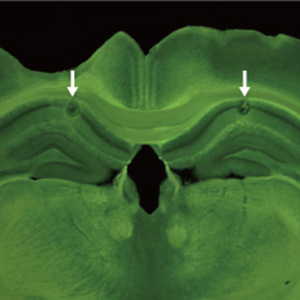
-
How left and right hippocampal CA1 regions in the mouse brain talk with each other
-
-
-
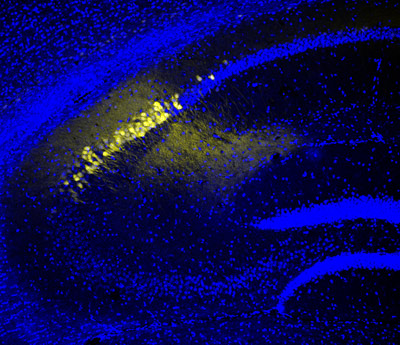
-
How the hippocampus orchestrates memory consolidation
-
-
-

-
Social novelty has a special place in the brain
-
-
-

-
Brain waves in mice change based on memory age
-
-
-
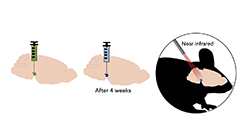
-
RIKEN Research Highlight: Deep brain stimulation realized with the help of nanoparticles
-
-
-

-
The big picture: mouse memory cells are about experience, not place
-
-
-

-
Gene linked to intellectual ability affects memory replay in mice
-
-
-

-
Deep-brain exploration with nanomaterial
A less invasive way to stimulate the mouse brain with light
-
-
-

-
Stopping the brain's memory circuits from overheating
-
-
-

-
The brain clock that keeps memories ticking
-
-
-
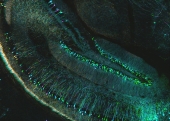
-
Keeping mouse memories in order is all in the timing
-
-
-
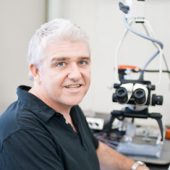
-
Connecting the circuits that control memory
-
-
-

-
A circuit for change
-
Lab Members
Principal investigator
- Thomas John Mchugh
- Team Director
Core members
- Steven James Middleton
- Research Scientist
- Kazumasa Tanaka
- Special Postdoctoral Researcher
- Arthur Jyh-Yen Huang
- Technical Staff I



